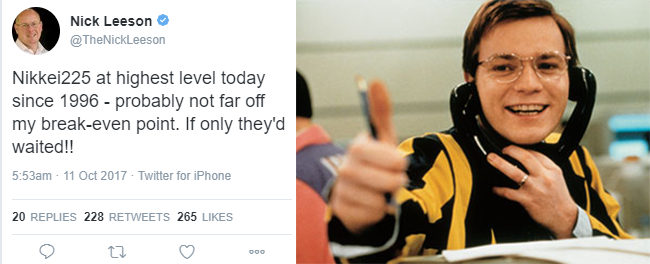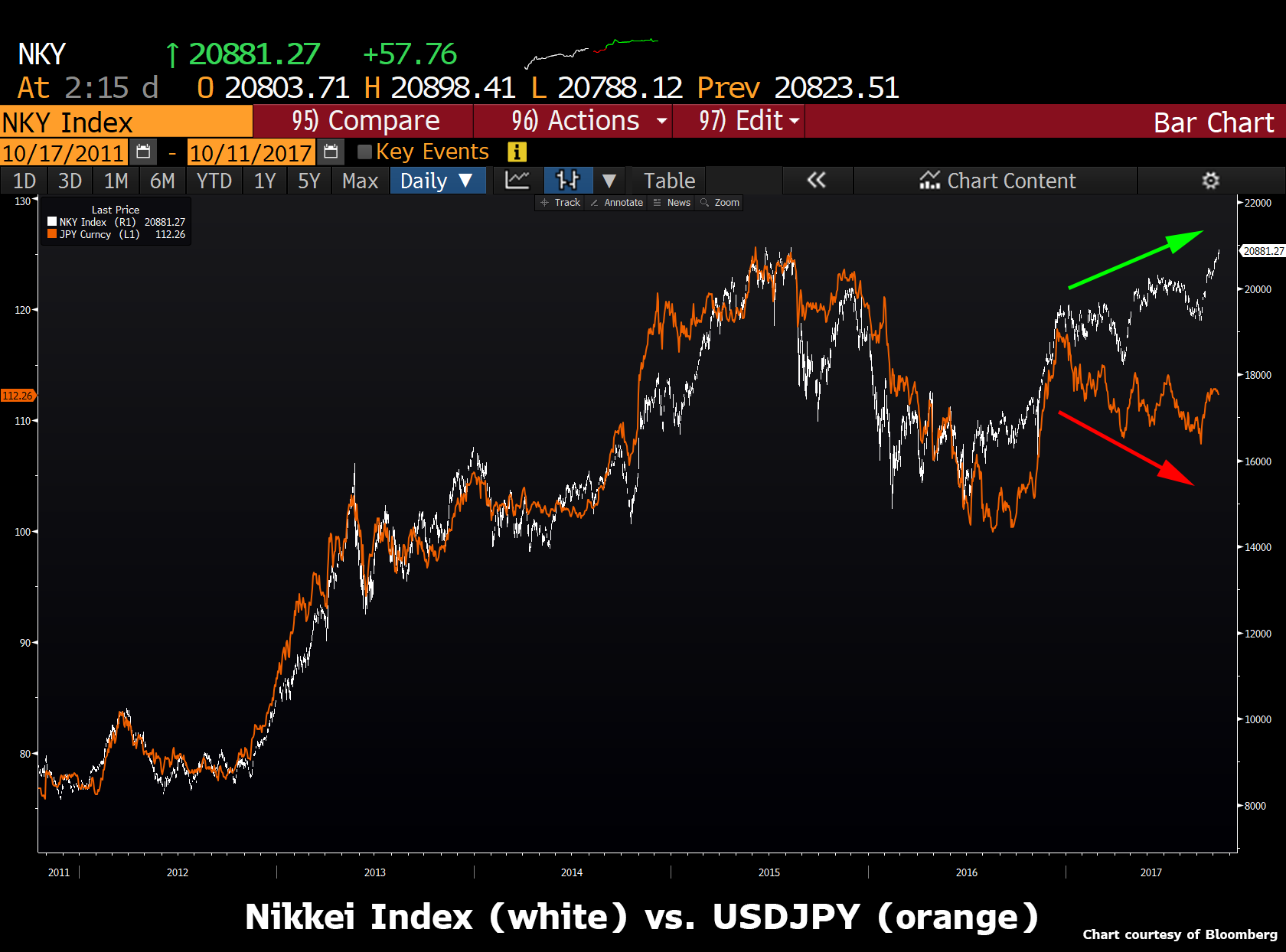
Authored by Kevin Muir via The Macro Tourist,
Although US stock markets are getting all the attention, Japan is quietly knocking up against 20-year highs.
In 1995, Nick Leeson bankrupted United Kingdom’s oldest merchant bank with his Nikkei futures trading, but at least he has kept his sense of humour about it. I doubt Barings Bank shareholders find it quite so funny, yet it did give us a thrilling trader-turned-OJ chase through southeast Asia, and a not-half-bad-Ewan-McGregor movie. And here we are, some two decades later, and Nick is finally almost even on his trade.
Kidding aside, Japan has been a decent little long trade over the past couple of months. Even though we were trading at these levels in 2015, that was when the Yen was 125, as opposed to the much stronger current quote of 112.

This divergence between the Yen and the Nikkei is the story that is going most unnoticed.
Since the start of Abeconomics, the Nikkei has been tied to the hip of the Yen. The BoJ floods the system with Yen, this causes the value of the Yen to go down, and Japanese stocks get a bid.
Well, you could argue the BoJ is still flooding their financial system with liquidity, but the Yen is no longer declining. But most importantly, this Yen strength is not causing any stress in Japanese financial markets. In fact, it almost appears like capital has concluded that Japan is cheap, and is flowing into Japan.
This summer I suggested it might be time to Sell US - Buy Japan?. The fact that over the last few months, the Nikkei was able to rally even in the face of Yen strength, has only emboldened my call.
I know everyone thinks Abeconomics will end in disaster. Nothing gets more laughs than hopping on twitter and making some joke about the inevitability of the Japanese collapse from all their money printing. Yet if there is one thing that today’s markets should teach us, it is that anything can happen. Maybe eventually Japan will implode in a fiery inflationary mess. Won’t deny that one bit. But in the meantime, there is money to be made.
And sometimes the breaking of a long held correlation is more important than its continuation.
Yen weakness has been the driving force behind Japanese economic strength for the past few years. With this recent divergence, maybe it is the signal Japan is ready to stand on its own?
It seems like everyone is all bulled up on America. Well, sold to them. I am more interested in buying the quiet rising market which everyone is skeptical of, rather than the frothy expensive one that everyone loves.
* * *[ZH: Some context - it has taken 21 years of "buy and hold" to breakeven... and the index still needs to rally 88% further to get back to even from its record highs in 1989.]